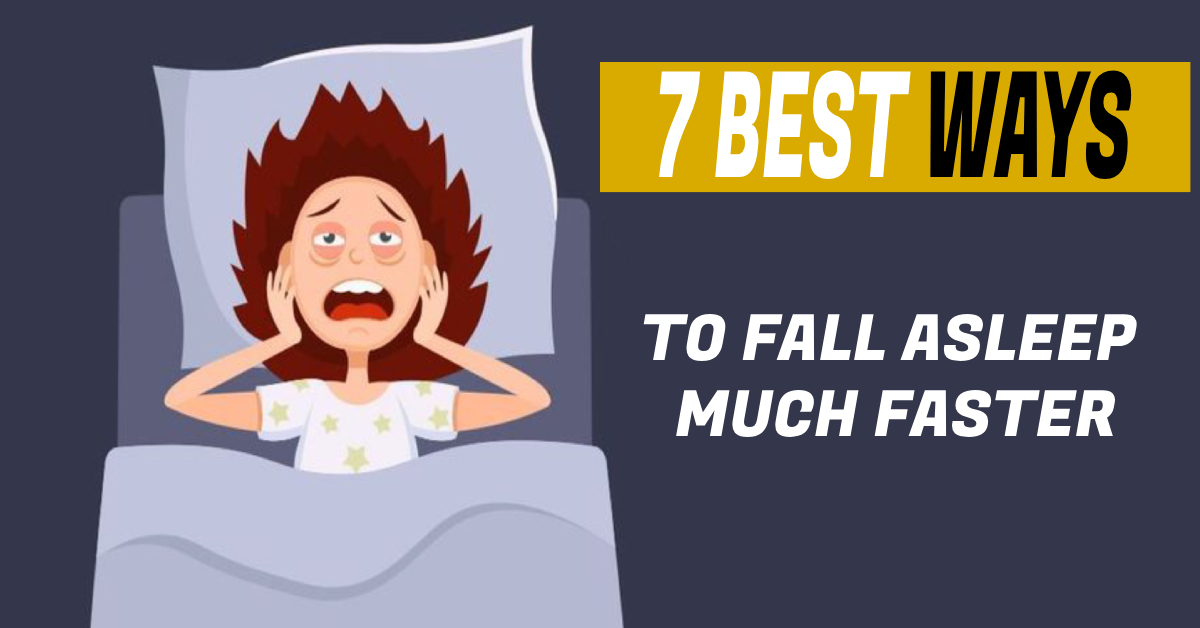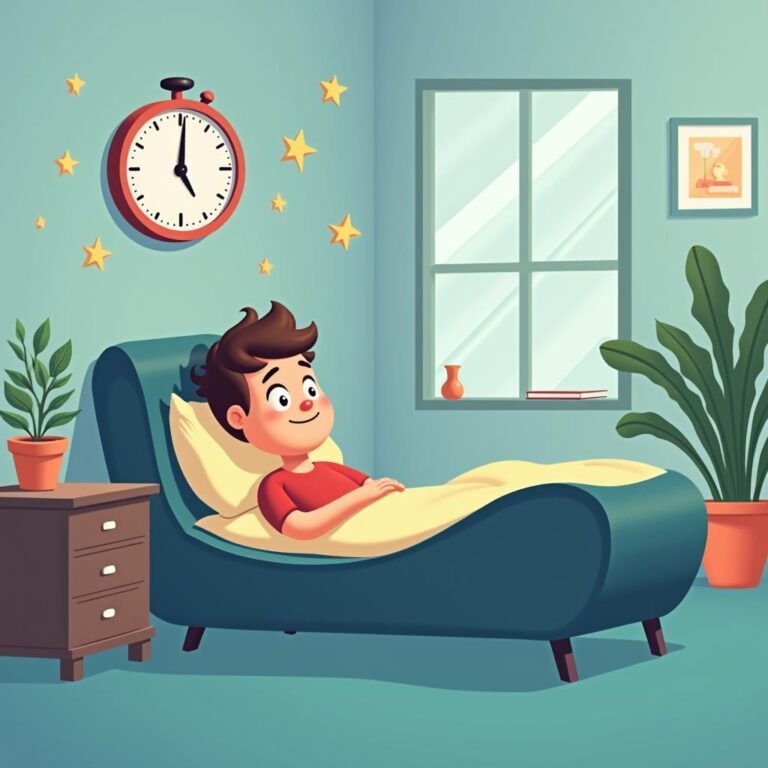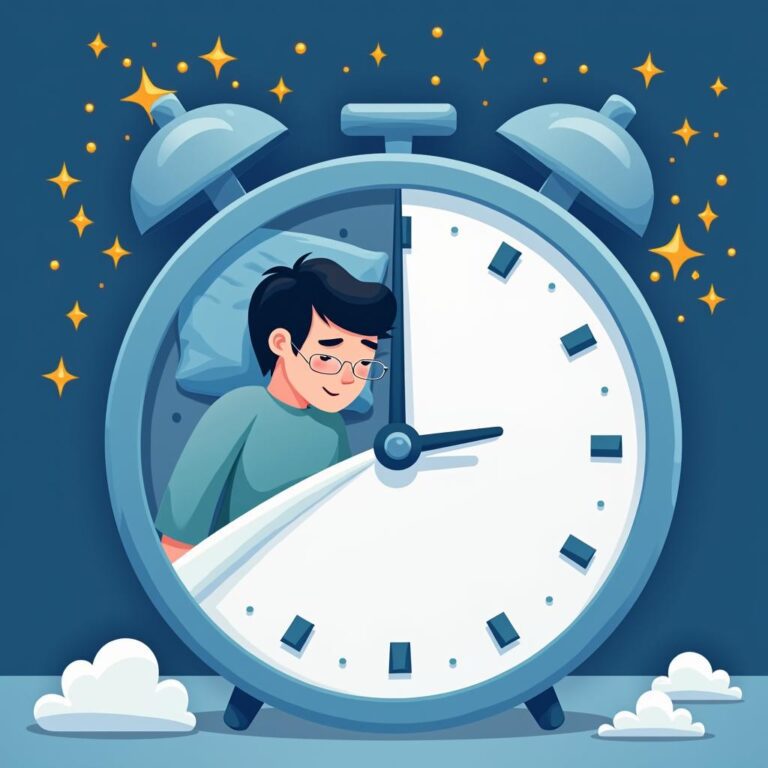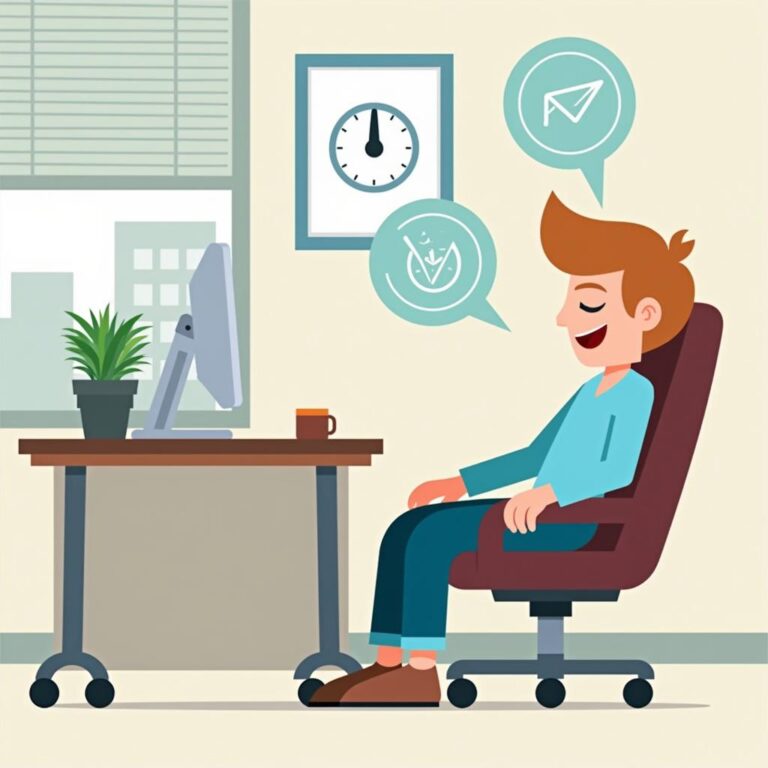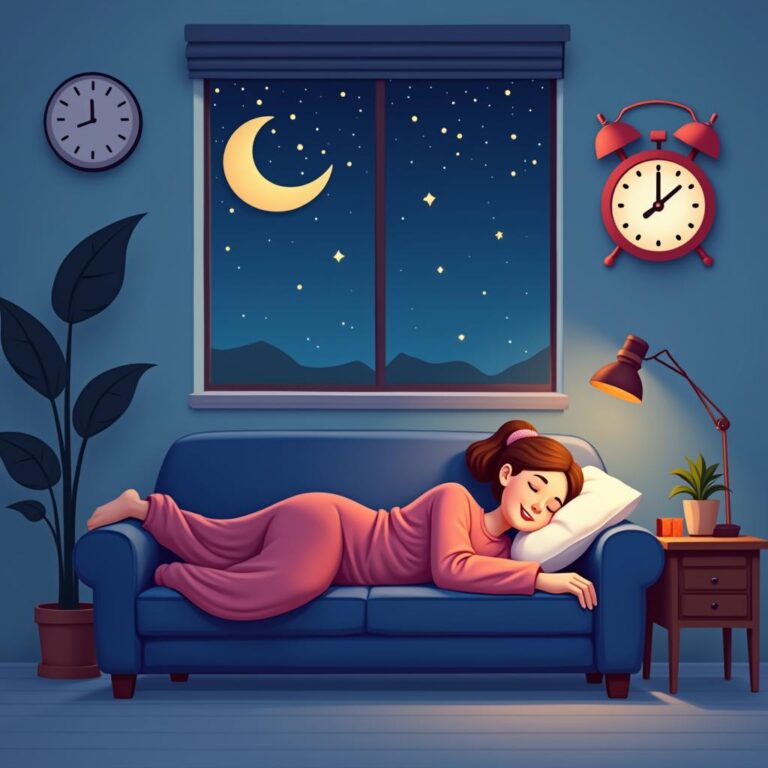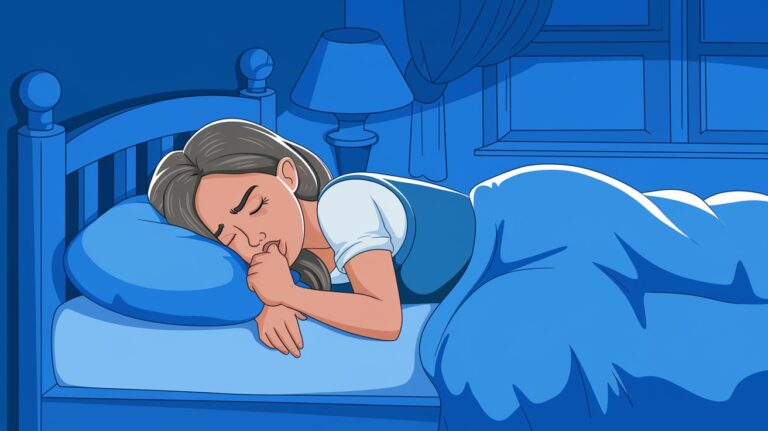Quality sleep is essential for maintaining overall health and is key to fall asleep faster, impacting nearly every aspect of our well-being. When we sleep well, our bodies undergo critical processes like tissue repair, memory consolidation, and immune system support. Prioritizing strategies to improve our ability to fall asleep faster can lead to more restorative rest, ultimately enhancing our daily vitality and long-term health.
Consistent, restorative sleep helps regulate mood, enhances cognitive function, and promotes physical health, lowering risks of chronic conditions like heart disease and diabetes. Unfortunately, many people struggle with falling asleep quickly, which can lead to fatigue, stress, and long-term health challenges. By following practical sleep tips, we can improve our sleep quality and daily vitality.
Many people face common struggles when trying to fall asleep, from racing thoughts and stress to discomfort and overstimulation from screen time.
These challenges can make winding down feel nearly impossible, often leading to long nights and frustrating restlessness. Fortunately, with a few targeted strategies, falling asleep faster is achievable.
This article provides practical, science-backed tips that anyone can incorporate into their nightly routine to ease into sleep more quickly and enjoy more restful nights.
Table of Contents
Toggle1. Limit Screen Time Before Bed
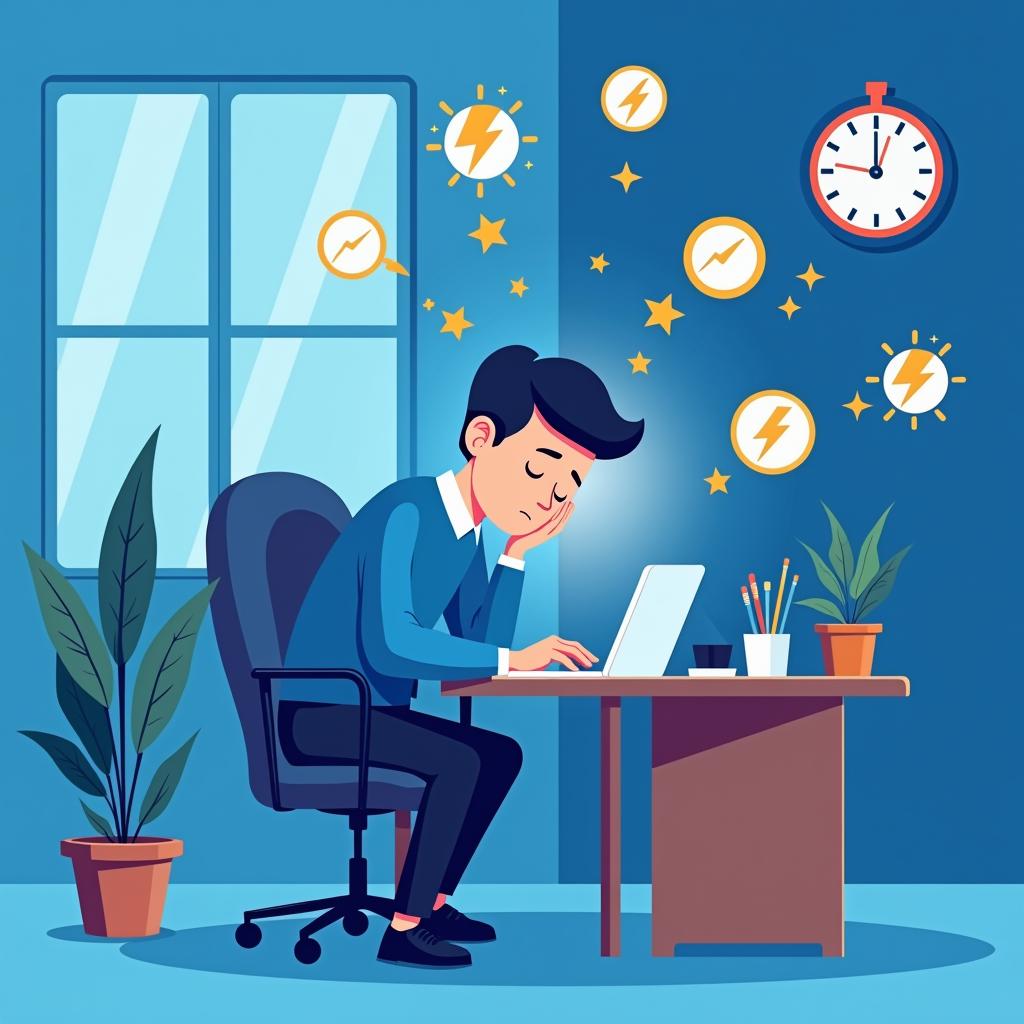
Reducing screen time before bed can make it easier to fall asleep faster. Blue light from screens (phones, tablets, and computers) disrupts melatonin production, the hormone responsible for regulating sleep. Less screen exposure helps the brain wind down and signals it’s time for rest.
Why It Works:
Studies show that blue light exposure in the evening delays melatonin release, making it harder to fall asleep. Limiting screen time helps maintain natural circadian rhythms.
Quick Action Steps:
- Set a “no screens” rule 1 hour before bed.
- Use apps or settings to reduce blue light on devices.
- Consider reading a physical book instead of scrolling online.
2. Read a Book

Reading a book before bed helps quiet the mind and provides a gentle distraction from daily stressors. Opting for a physical book (rather than an e-book) minimizes exposure to blue light, naturally preparing your body for sleep.
Why It Works:
Reading is a low-stimulation activity that allows the brain to shift into a relaxed state, reducing stress and calming the nervous system, which can make it easier to drift off.
Quick Action Steps:
- Choose a calm, non-stimulating book.
- Set aside 15–30 minutes to read.
- Keep a book next to your bed as a nightly routine reminder.
3. Reduce Caffeine Intake

Limiting caffeine, especially in the afternoon and evening, can improve your ability to fall asleep faster. Since caffeine is a stimulant, consuming it too late in the day can keep your mind active, making it harder to relax and drift off.
Why It Works:
Caffeine blocks adenosine receptors in the brain, which promotes wakefulness. Cutting back allows your body’s natural sleep signals to work more effectively.
Quick Action Steps:
- Avoid caffeine after 2 p.m.
- Switch to decaf options or herbal teas in the afternoon.
- Check labels for hidden caffeine sources, like chocolate or soda.
4. Lower Room Temperature
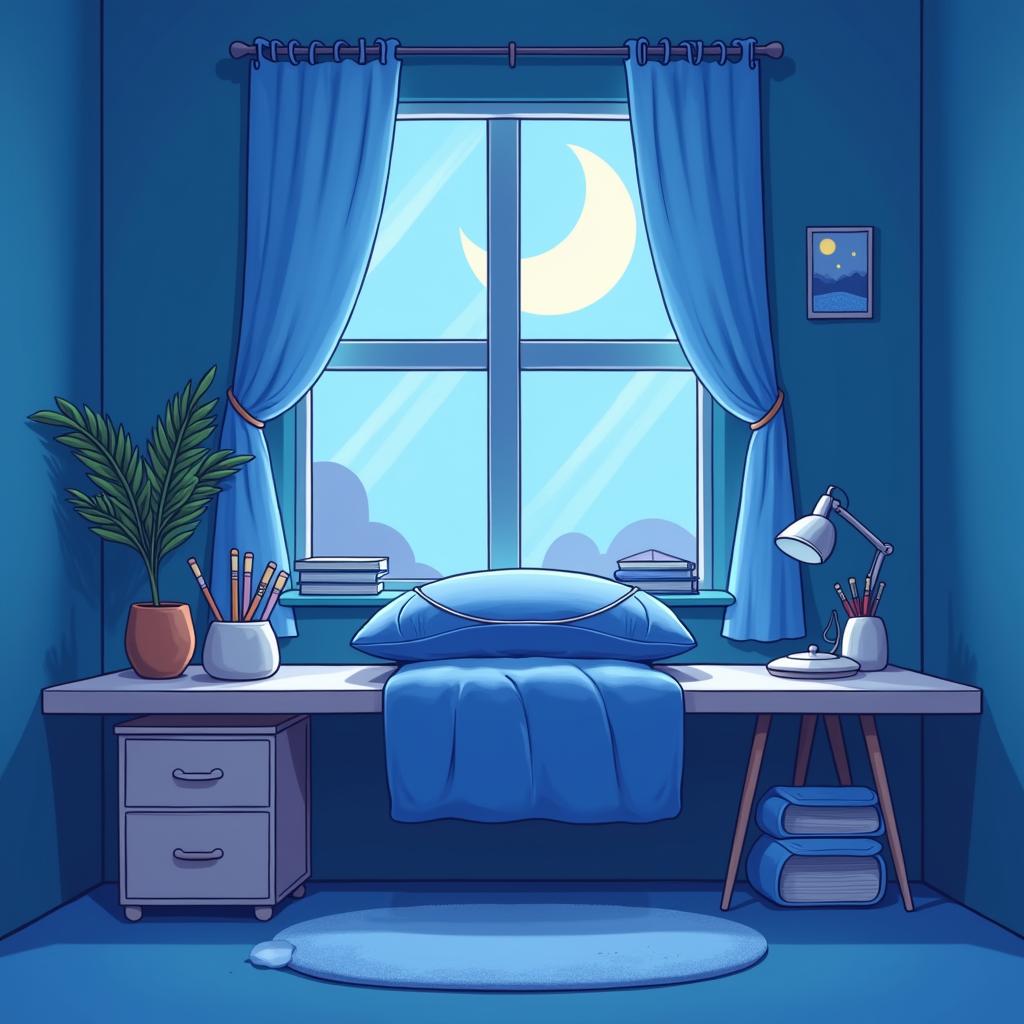
Creating a cooler sleeping environment can significantly enhance your ability to fall asleep faster. Ideally, the bedroom temperature should be between 60°F and 67°F (15°C to 20°C) for optimal sleep. A cooler room helps the body naturally lower its core temperature, which is crucial for initiating sleep.
Why It Works:
Research indicates that a cooler room supports the body’s natural sleep cycle. A drop in core temperature signals to the brain that it’s time to sleep, promoting deeper and more restorative rest.
Quick Action Steps:
- Set your thermostat to a comfortable lower temperature before bedtime.
- Use breathable sheets and lightweight blankets to avoid overheating.
- Consider a fan or open windows to increase airflow.
5. Practice Deep Breathing
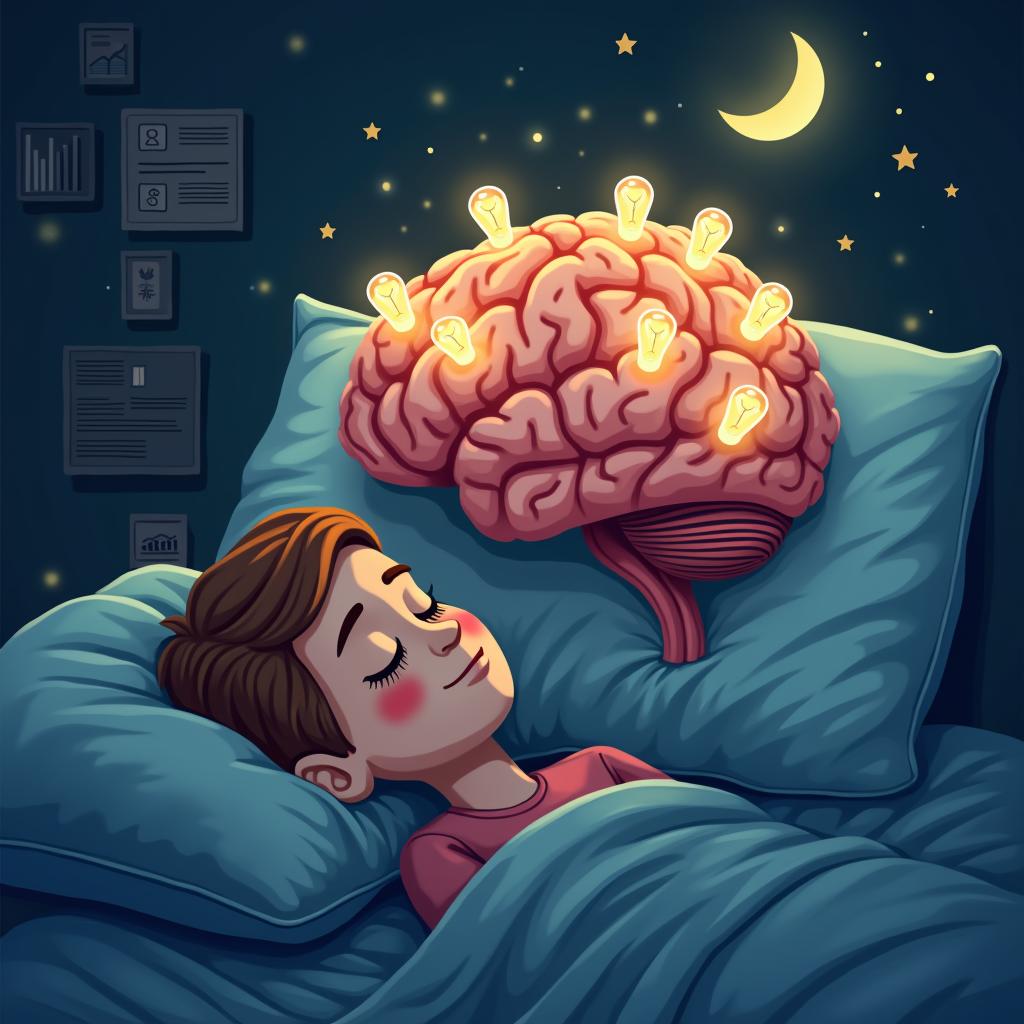
Deep breathing is a simple yet effective technique to calm the mind and body, promoting faster sleep. By focusing on your breath, you can reduce stress and anxiety, which often hinder the ability to fall asleep faster.
Why It Works:
Research indicates that deep breathing activates the body’s relaxation response, lowering heart rate and reducing cortisol levels. This physiological change signals to your body that it’s time to rest.
Quick Action Steps:
- Try the 4-7-8 breathing technique: inhale for 4 seconds, hold for 7, and exhale for 8.
- Practice deep breathing for 5-10 minutes before bed.
- Incorporate mindfulness meditation to enhance relaxation.
6. Listen to Calming Sounds
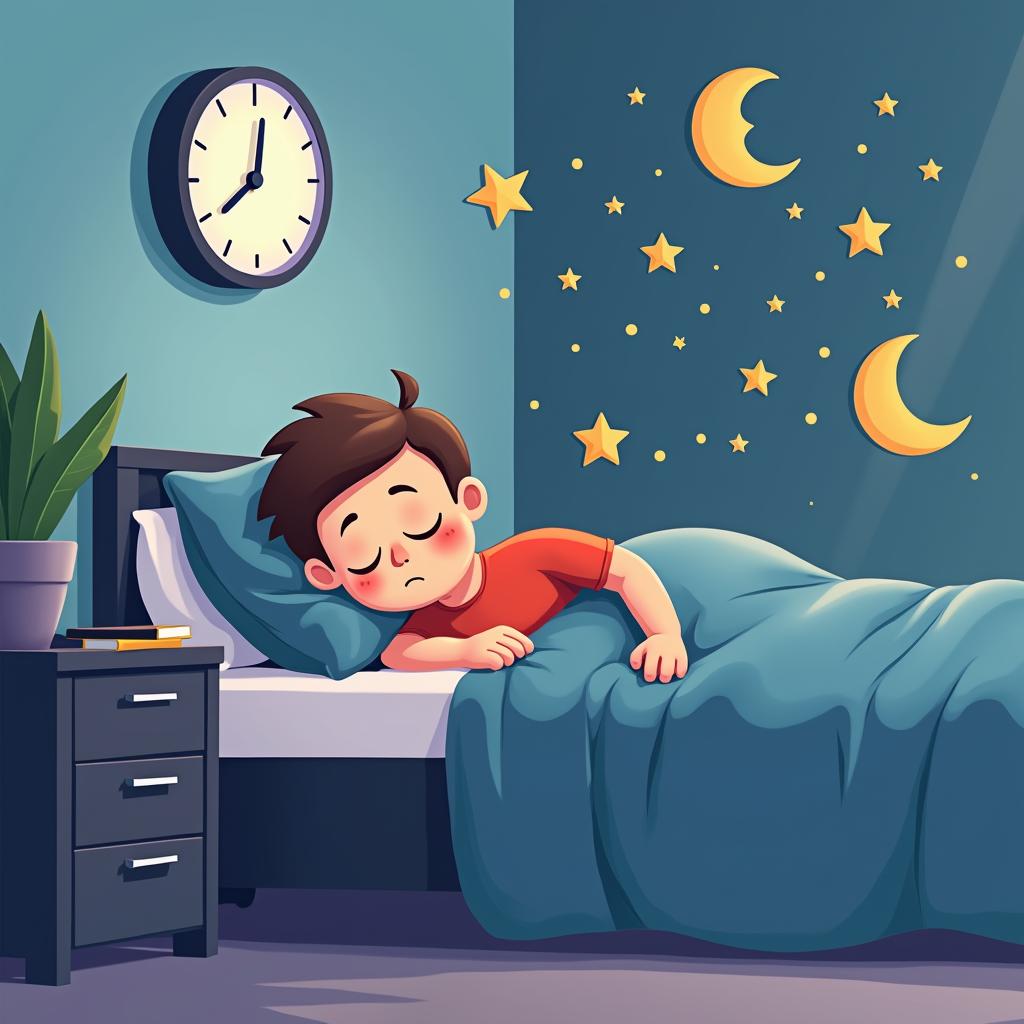
Listening to calming sounds, such as white noise, nature sounds, or gentle music, can create a soothing environment that promotes relaxation and helps you fall asleep faster. These sounds can mask disruptive noises and provide a comforting auditory backdrop.
Why It Works:
Research indicates that calming sounds can lower heart rates and reduce anxiety levels, making it easier for the brain to transition into sleep. They can also promote a state of mindfulness, allowing your thoughts to drift peacefully.
Quick Action Steps:
- Create a playlist of relaxing sounds or music.
- Use a white noise machine or app to drown out distractions.
- Experiment with nature sounds, like ocean waves or gentle rain, to find what soothes you best.
7. Create a Consistent Sleep Schedule
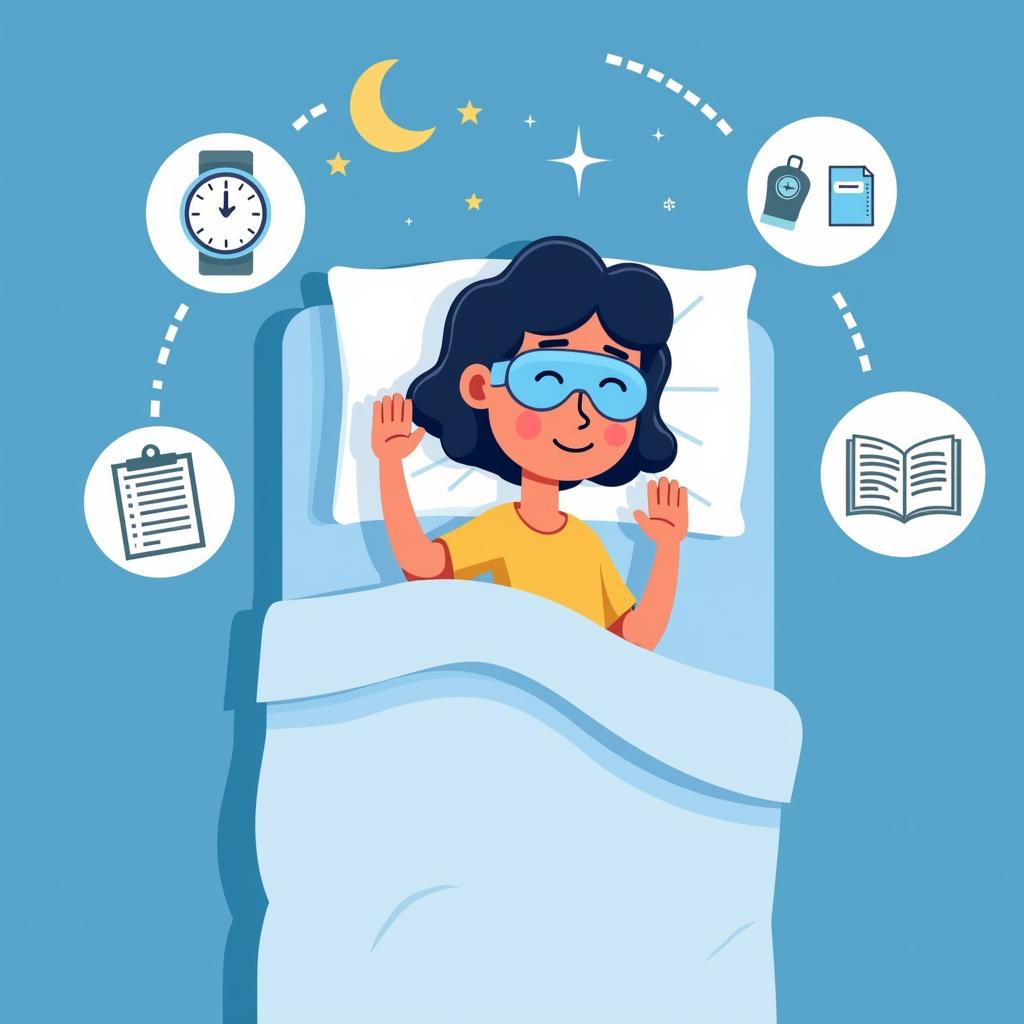
Establishing a consistent sleep schedule involves going to bed and waking up at the same time every day, even on weekends. This routine helps regulate your body’s internal clock, making it easier to fall asleep faster and wake up feeling refreshed.
Why It Works:
Research indicates that a regular sleep schedule stabilizes circadian rhythms, promoting deeper and more restorative sleep. Irregular sleep patterns can lead to sleep disturbances and increased daytime fatigue.
Quick Action Steps:
- Set a fixed bedtime and wake-up time.
- Use an alarm to remind you when to sleep.
- Gradually adjust your schedule if you need to make changes.
Additional Tips
Mindfulness Practices:
Incorporating mindfulness practices into your bedtime routine can significantly improve your ability to fall asleep faster. Techniques such as meditation, deep breathing exercises, or gentle yoga can help calm your mind and release tension from your body.
Set aside 10-15 minutes before bed to engage in these practices, focusing on your breath or using guided meditation apps. This not only reduces stress but also creates a sense of peace that signals to your body that it’s time to wind down.
Limit Naps:
While napping can be beneficial, excessive or poorly timed naps can disrupt your nighttime sleep. If you struggle with falling asleep at night, limit naps to 20-30 minutes in the early afternoon.
This brief duration helps recharge your energy without entering deeper sleep stages that can leave you feeling groggy. By keeping naps short and early, you can enhance your nighttime sleep quality and maintain a more consistent sleep schedule.
Exercise Regularly:
Regular physical activity is a powerful tool for improving sleep quality. Aim for at least 150 minutes of moderate exercise each week, such as brisk walking, swimming, or cycling.
Exercise not only helps reduce anxiety and stress but also increases the amount of slow-wave sleep, which is the most restorative phase of sleep.
However, be mindful to complete any vigorous workouts at least three hours before bedtime to prevent increased alertness that could interfere with falling asleep.
Evaluate Your Sleep Environment:
Your sleep environment plays a crucial role in the quality of your rest. Aim to create a sleep sanctuary by ensuring your bedroom is dark, cool, and quiet.
Consider using blackout curtains to block out light, a fan or white noise machine to mask disruptive sounds, and comfortable bedding that supports your preferred sleeping position.
A well-designed sleep environment can help signal to your body that it’s time to relax and rest.
Practice Gratitude Journaling:
Before you drift off to sleep, take a moment to reflect on the day by practicing gratitude journaling. Spend 5-10 minutes writing down three things you are grateful for, no matter how small.
This positive reflection can shift your mindset from stress and anxiety to appreciation and contentment, making it easier to relax. Creating a gratitude habit not only enhances your mood but also fosters a more positive outlook, contributing to a better night’s sleep.
Limit Fluid Intake Before Bed:
To prevent disruptive trips to the bathroom during the night, be mindful of your fluid intake in the hours leading up to bedtime. Aim to drink most of your daily fluids earlier in the day, and reduce consumption in the evening.
This simple adjustment can lead to a more restful night’s sleep by minimizing interruptions and helping you stay in deeper sleep stages.
Conclusion:
In conclusion, achieving better sleep faster is possible by implementing effective strategies such as limiting screen time, creating a consistent sleep schedule, and practicing mindfulness.
Each individual’s sleep journey is unique, so it’s essential to experiment with these tips to discover what works best for you. Remember, quality sleep is vital for your overall health and well-being.
We’d love to hear your experiences! Share your thoughts and tips in the comments below, and let’s support each other on the path to better sleep.

